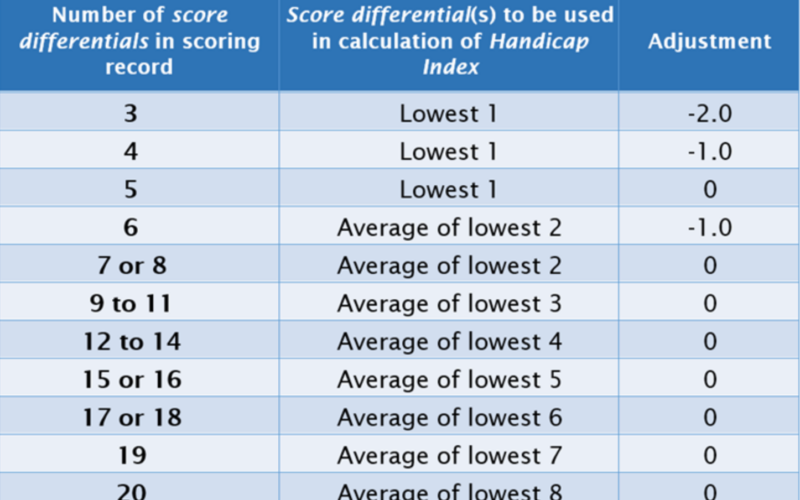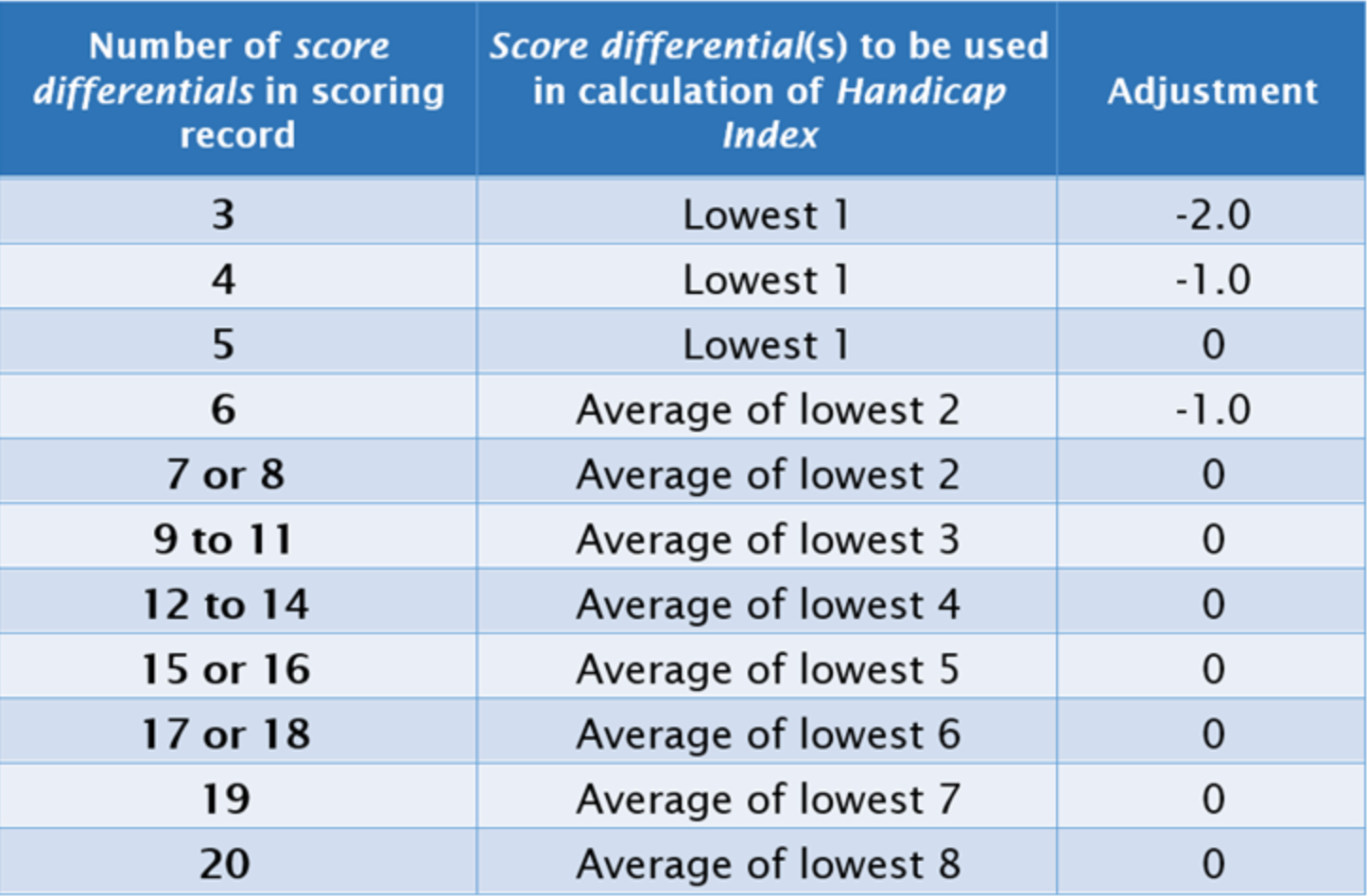Maja Stark took a one-shot lead in the LPGA Tour’s Maybank Championship after shooting a 6-under 66 Friday.
5 things you *need* to know to understand Handicap Indexes

Handicap Indexes are crucial to golf’s fabric, but many people misunderstand them. Here are five things to know.
The post 5 things you *need* to know to understand Handicap Indexes appeared first on Golf.
Handicap Indexes are crucial to golf’s fabric, but many people misunderstand them. Here are five things to know.
The post 5 things you *need* to know to understand Handicap Indexes appeared first on Golf.
Golf is unlike any other sport. No matter your skill level or experience, you can compete head-to-head with just about anyone. As long as you have a Handicap Index, the playing field is always level.
Thanks to the World Handicap System, anyone can get a Handicap Index. Jointly governed worldwide by the USGA and R&A, this system allows for golfers of all abilities to compete on a fair basis. All you need to do is sign up and enter your scores. Once that’s done, you’ll get a number — Handicap Index — corresponding to your skill level.
Despite the importance of handicap indexes to the game of golf, though, many players have a fundamental misunderstanding of how the system works. In an effort to correct this, we’ve listed five things you need to know to better understand Handicap Indexes and how they work.
1. Handicap Index measures *current* form
As any avid golfer knows, your game comes and goes. One season, the sport feels easy, while the next, it feels impossible. It’s maddening knowing that your game could abandon you at any time, but it’s a reality of the sport.
With the ebbs and flows of your game being a reality, your Handicap Index does its best to measure your current form by only considering your 20 most recent scores in its calculation.
“We do that because we know that players’ games and their ability levels change over time,” says the USGA’s Managing Director of Handicapping & Course Rating, Steven Edmondson. “A 20-score scoring record, on average, gets replaced once per year.”
2. Only eight scores count
While your 20 most recent scores are considered in the Handicap Index calculation, only your best eight scoring differentials count. This means that each time you tee it up, it is likelier than not that your score won’t count toward your Handicap Index.
“We do that because [Handicap Index] is about your demonstrated ability,” Edmondson says. “We used to call this your potential.”
Next time one of your playing partners has an off day, don’t automatically assume they have a vanity handicap. You won’t shoot your Handicap Index very often.
3. Shooting your Handicap Index isn’t common
Lots of golfers hear a Handicap Index number and automatically assume that’s the score a golfer shoots every time they tee it up. In truth, golfers only shoot their Handicap Index when they have an excellent day on the course.
“[Your Handicap Index] is something that you play to 20 to 25 percent of the time,” Edmondson says. “And that’s where we should be rewarding people. That’s where you should be winning or placing high is when you play to your handicap or better than your handicap. If someone goes out there and plays average, we would all be in the running. But when you look at someone playing to their best potential, we should reward people based on that.”
4. Handicap Index isn’t your average score
One of the biggest misconceptions about your Handicap Index is that it is your average score. For example, when someone hears a golfer is a 4 handicap, they assume they will shoot four over par every time. That is far from the case.
“A big misconception is that [Handicap Index] is an average,” Edmondson says. “Then people get frustrated because they don’t play to that number as often as they’d like. Instead, they should look at it as an aspirational number — when you are playing on your game.”
5. You don’t have to be an avid golfer to get a Handicap Index
Sometimes recreational golfers get intimidated when they hear the term Handicap Index. For lots of weekend warriors, a Handicap Index is something they think only serious golfers should have. But that’s not true!
Even if you only play a handful of times per year, the World Handicap System can calculate an accurate Handicap Index for you. While 20 scores is the typical number for calculating a Handicap Index, it can be calculated with fewer than 20 scores. The chart below shows how.

It might be intimidating to think about getting a Handicap Index, but the system is not reserved for only avid players. As long as you can cobble together a few scores per year, you can get a Handicap Index and compete with golfers of all skill levels.
The post 5 things you *need* to know to understand Handicap Indexes appeared first on Golf.
